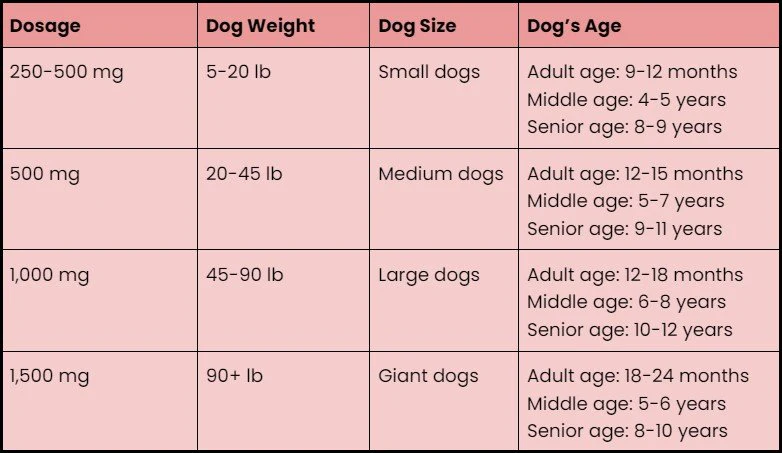It is very difficult to see your dog feeling unwell. When a dog is ill, they are unable to take care of themselves, so pet parents must provide them the loving support and environment they need to recuperate. Not only can proper care for your sick dog expedite their recovery, but it can also reduce costs by avoiding repeated visits to the clinic. So, we’re going to address the common question that pet owners normally have: how to take care of a sick dog?
History Of Glucosamine Used For Dog’s Health
Glucosamine for dogs has been in the market for about a decade now after coming to the market in the 1990s as a remedy to joint pain and other related disorders in dogs.
As with humans, the concept of giving glucosamine for dogs is with the aim of improving joint health. It is used in an effort to prevent inflammation and stimulate new cartilage formation. It helps ease the pain of joints and increases their flexibility.
Since that time, glucosamine has been a product that is rather popular and can be found in various forms: from chews to liquids to tablets.
How Does It Work?
Glucosamine supplements used in dogs improve joint tissue health and functionality in dogs. It is utilized to promote synthesis of proteoglycans, which can be considered as components of cartilage.
It can help to reduce inflammation and improve the overall health of joint tissues to reduce joint pain. Additionally, glucosamine has been shown to have anti-inflammatory properties, which can help to reduce swelling in the joints.
This can be particularly useful for those dogs diagnosed with osteoarthritis, which is a degenerative disease affecting joint cartilage creating discomfort and restricting the ability of the dog to move effortlessly.
- Reduced joint pain: Some positive effects of glucosamine for dogs include decreasing joint pains, mostly in dogs with osteoarthritis.
- Improved mobility: Glucosamine works by reducing the amount of joint pain, which in turn can improve the mobility of the dog.
- Slowed progression of osteoarthritis: Constituents like glucosamine have been found useful in managing the degenerative joint disease and maintaining joint health.
- Antioxidant properties: In addition to the above-mentioned effects, glucosamine has antioxidant properties which is useful for decreasing oxidative stress within the joints and preventing further harm to the tissues.
- Reduced inflammation: Glucosamine has been found to possess anti-inflammatory effects that can reduce joint swelling.
- Increased lubrication of joints: The other benefit of glucosamine is that it boosts the production of synovial fluid which is like oil to the joints. This may help to reduce friction and improve flexibility.
Many pet owners and veterinarians report positive results when using glucosamine supplements for dogs with joint pain, particularly those with osteoarthritis.
It’s important to note that while some dogs may respond well to glucosamine, others may not see any benefit. They may even experience side effects, such as upset stomach or diarrhea.
How Much Glucosamine Should You Give Your Pet?
It is important to consider the right amount of glucosamine when giving a dose to your dog.
But have you ever wondered why?
Well, you need to know that animals need a certain amount of reach levels in which supplements work great as a therapeutic, which means it provides the needed support to joint health.
Any amount given to the dog is better as compared to none at all, but if you want to give your dog the needed help then a certain amount of dosage is a key.
Vets often recommend a daily dose of about 20 milligrams of glucosamine for dogs per each pound of body weight.
So, if you are not sure about the exact weight of your pets, a general guideline can help you decide about how many milligrams of glucosamine you should consider for your dogs.

You need to know that the recommended treatment starts at a higher dose until you see definite signs of improvement, and after that, they gradually taper down in strength.
Remember that the right amount can depend on your dog’s unique weight, age, and severity of the joint condition, so be sure before you start with the glucosamine dosage for your dogs.
Further, there are different delivery methods available for glucosamine, such as pills, injections, powder, liquid, chewables, or capsules. So, choose the version your dog likes and tolerates well, as the dosage will work great to improve your dog’s joint health.
Today, even some dog foods include glucosamine, which is a great way to help your dog maintain a constant stream of it in their body. Still, chewable tablets or supplement pills prove to be effective.
What Is The Best Glucosamine For Pets?
What separates the best glucosamine is quality, and you should ensure that it will be suitable for your pet. When choosing a glucosamine supplement for your dog, consider the following:
- Type of Glucosamine: There are two main forms of Glucosamine: Glucosamine Sulphate and Glucosamine Hydrochloride. They have been established to help in minimization of joint pains.
- Quality: It is advisable to take glucosamine supplements from a manufacturer who has a good reputation in the market for high quality. You should also consider third-party verification to be double sure.
- Dosage: Make sure that the supplement dosage will suit your dog according to its weight and general health condition. Your pet’s veterinarian shall assist you to identify the right dosage for your dog.
- Form: Glucosamine supplements for dogs are available in chews, liquids, and tablets form. Select a form that you feel will be most comfortable for your pets.
Conclusion
All in all, it can be concluded that glucosamine supplements are beneficial in dogs with osteoarthritis, under the conditions that they are used as per the suggested dosage.
The dosage should be adjusted based on the size of the dog, its age, and health. Check for your dog’s reaction to the supplement and make dosage adjustments accordingly.
We recommend the Maximum Hip & Joint supplement – a beef flavored glucosamine supplement by VetGen Pharmaceuticals.






